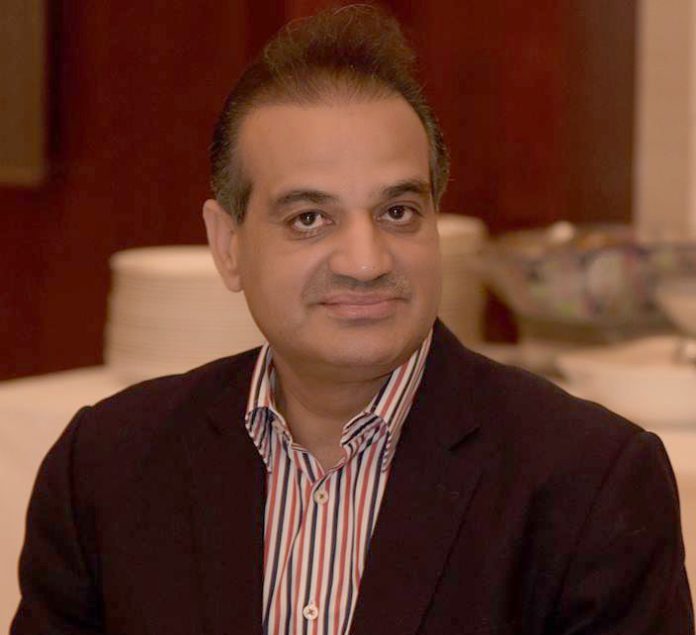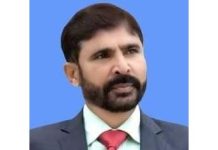Comment
Ansar M Bhatti
The historical significance of January 13, 2024, will forever be etched in the political and judicial archives of Pakistan as a somber day, marking the unsettling exclusion of the prominent political entity, Pakistan Tehreek-e-Insaf (PTI), from the impending elections set for February 8, 2024. This unsettling development unfolded on the grounds of what can only be described as purely technical reasons, casting a shadow reminiscent of the dark chapters in Pakistan’s past.
The Supreme Court, led by Chief Justice Qazi Faez Isa, and comprising Justice Mohammad Ali Mazhar and Justice Musarrat Hilali, delivered a ‘stringent’ verdict against the PTI, citing apparent violations of intra-party election procedures outlined in both the party’s constitution and the guidelines established by the Election Commission of Pakistan. Critics argue that these grounds seem somewhat trivial, given the pervasive challenges faced by political parties across Pakistan in conducting flawless intra-party elections.
The selective enforcement of these technicalities, singling out the PTI, raises questions about the consistency and impartiality of such legal actions. This episode joins the ranks of infamous judicial events, including the tragic judicial fate of PPP leader Zulfiqar Ali Bhutto and the ousting of PML leader Nawaz Sharif in the Panama case. Strikingly, the common thread connecting these three political dismissals is their confrontation with the Establishment. In each instance, those who dared to challenge the status quo found themselves on the wrong side of the political spectrum, meeting a fate reminiscent of the proverbial judicial murder.
The echoes of history resound in the parallel narratives of these political leaders, all of whom became casualties in their endeavor to contest the dominance of the Establishment. As the nation grapples with the aftermath of this latest setback, the events of January 13, 2024, serve as a stark reminder of the complex interplay between politics and power in Pakistan, where challenging the established order comes with profound consequences.
The recent developments in Pakistan raise concerns about the potential weakening of the political and democratic order in the country. Unfortunately, the decisions made seem to cast a shadow over the future of democracy in Pakistan. The responsibility for this situation falls not only on the decision-makers but also on the political parties, who share equal blame for the current state of affairs.
It is disheartening to observe that political parties, in pursuit of short-term gains, often align themselves with the forces maintaining the status quo. However, when they themselves become targets of such decisions later on, they lament their earlier choices. This opportunistic approach by political parties ultimately harms the democratic fabric of the nation.
Drawing lessons from recent history, it becomes apparent that in 2018, the PTI ascended to power with the support of the Establishment. However, as the party flexed its muscles, it eventually fell out of favor and was sidelined. Presently, the PML N seems to enjoy the favor of the Establishment, positioning itself as the chosen one.
With the backing of influential circles, the PML N is determined to seize power. The party’s leader, Nawaz Sharif, emerges as the top contender for the coveted position of prime minister. Following the PTI’s exit from the political arena, the PML N stands poised to secure the necessary majority to establish a government at the federal level.
All said and done, the real question that boggles everybody’s minds is whether the upcoming elections will have any credibility when one of the leading political parties shall not be taking part in this drill as a party because after the apex court verdict, the PTI candidates have been rendered independents, which means every candidate will have a separate election symbol.
Let me borrow following few lines from my previous article titled ‘PML-N -Establishment nexus ‘published in this newspaper on December 5, 2023.
‘’In a bid to curtail the PTI’s chances, there is speculation that the party might face the removal of its distinctive election symbol – the ‘bat.’ This strategic move aims to disrupt the party’s connection with voters, particularly in rural areas where illiteracy prevails. The risk lies in the potential confusion among voters, accustomed to identifying the PTI by the ‘bat’ symbol. Altering this familiar emblem could create a hurdle for the party as voters may struggle to navigate the ballot’’.
The recent developments in Pakistan underscore a disconcerting reality – a seeming lack of commitment to ensuring a free, fair, and inclusive national election. Instead of prioritizing the democratic principles that underpin the electoral process, there’s a conspicuous emphasis on securing victory for preferred parties. This raises legitimate concerns about the integrity of the electoral system.
The responsibility for the current situation lies not only with the PTI lawyers but also with the incumbent leadership. Firstly, they should have prioritized conducting intra-party elections with the utmost transparency. Recognizing the potential for opponents to exploit any perceived shortcomings, the party should have ensured a meticulous and fair electoral process.
Moreover, to strengthen their legal position, the PTI leadership ought to have engaged reputable lawyers beyond those affiliated with the party. By bringing in legal experts with a broader perspective, the party could have presented a more compelling and comprehensive case before the apex court.
It is disheartening to observe a preordained nature to these events, with outcomes seemingly predetermined well in advance of the actual election. The question that looms large is what international election observers will have to report, given the apparent lack of genuine competition and the perception that everything has been orchestrated well before the electorate has had a chance to cast their votes.
In the pursuit of a truly democratic society, it is crucial that elections are conducted transparently, allowing for a diverse range of voices to be heard. The current trajectory, however, paints a picture of a process where the notion of a level playing field is compromised, and the democratic spirit is overshadowed by partisan interests.
This scenario not only undermines the credibility of the electoral process but also raises doubts about the legitimacy of the outcomes. International election observers, tasked with evaluating the fairness of elections, will likely face a challenging task in reconciling the observed realities with the principles of democratic governance.
For Pakistan to build a robust and trustworthy democratic system, there must be a collective commitment to fostering an environment where electoral processes are not only free and fair but are also perceived as such by the citizens and the international community. The current state of affairs, as witnessed in recent events, demands a reevaluation of priorities to safeguard the democratic principles that form the bedrock of a truly representative government.
At the same time, it is crucial for political stakeholders to prioritize the long-term well-being of democracy over immediate gains. Collaborative efforts should be directed towards building a resilient and inclusive political system, free from the influence of vested interests.
In conclusion, it is imperative for justice that Chief Justice of Pakistan, Qazi Faez Isa, should have recused himself from the bench due to concerns raised by analysts about a ‘potential bias’ against the PTI. This speculation stems from the fact that he faced a Presidential reference during the party’s tenure in power, leading to an impression that he might be seeking to settle scores now. Interestingly, the PTI’s legal representatives did not raise objections to the bench’s composition. If the party leaders are contemplating such objections in the future, it may be too late, as the damage caused cannot be undone now.












